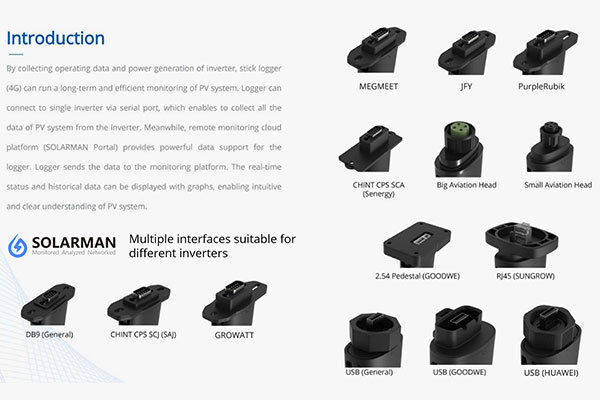Data logger for solar system is also called as smart dongle, which is used to acquire and record the data of solar system. It is usually installed on module/inverter side. Based on its functionality and application scope, solar data logger is divided into the following types:
Type 1: For monitoring purpose
This kind of data logger is used to monitor and record the production, voltage, current, power data of solar system, and transmits the data to the monitoring platform.
Type 2: For diagnose purpose
In addition to basic monitoring functions, data logger can be equipped with diagnosis and early-warning functions, which can inform users of solar system failure in an early manner.
Type 3: For communication purpose
This kind of data logger is equipped with communication function. It can transmit the data to the monitoring platform via Ethernet, WiFi, 4G, GPRS and etc,.
Type 4: Acquire data from module
This kind of data logger acquires data from module. It can monitor the production, voltage and current data of each string.
Type 5: Acquire data from inverter
This kind of data logger acquires data from inverter. It can monitor the running status of solar system via monitoring inverter output power, efficiency, temperature and etc,.

SOLARMAN stick logger supports GPRS, WiFi, 4G, Ethernet and other communication method. Furthermore, stick logger supports RS485/RS232/TTL/USB and other serial communication. With the design of multi-cover, it adapts to a vast majority of inverters. By collecting operating status and power generation of inverter, stick logger can run a long-term and efficient monitoring of PV system, which increases work efficiency and reduces management cost significantly. With its extended functions, such as GNSS, power-off reminder, Bluetooth, stick logger enables a quick configuration at site and an easy plant O&M.
